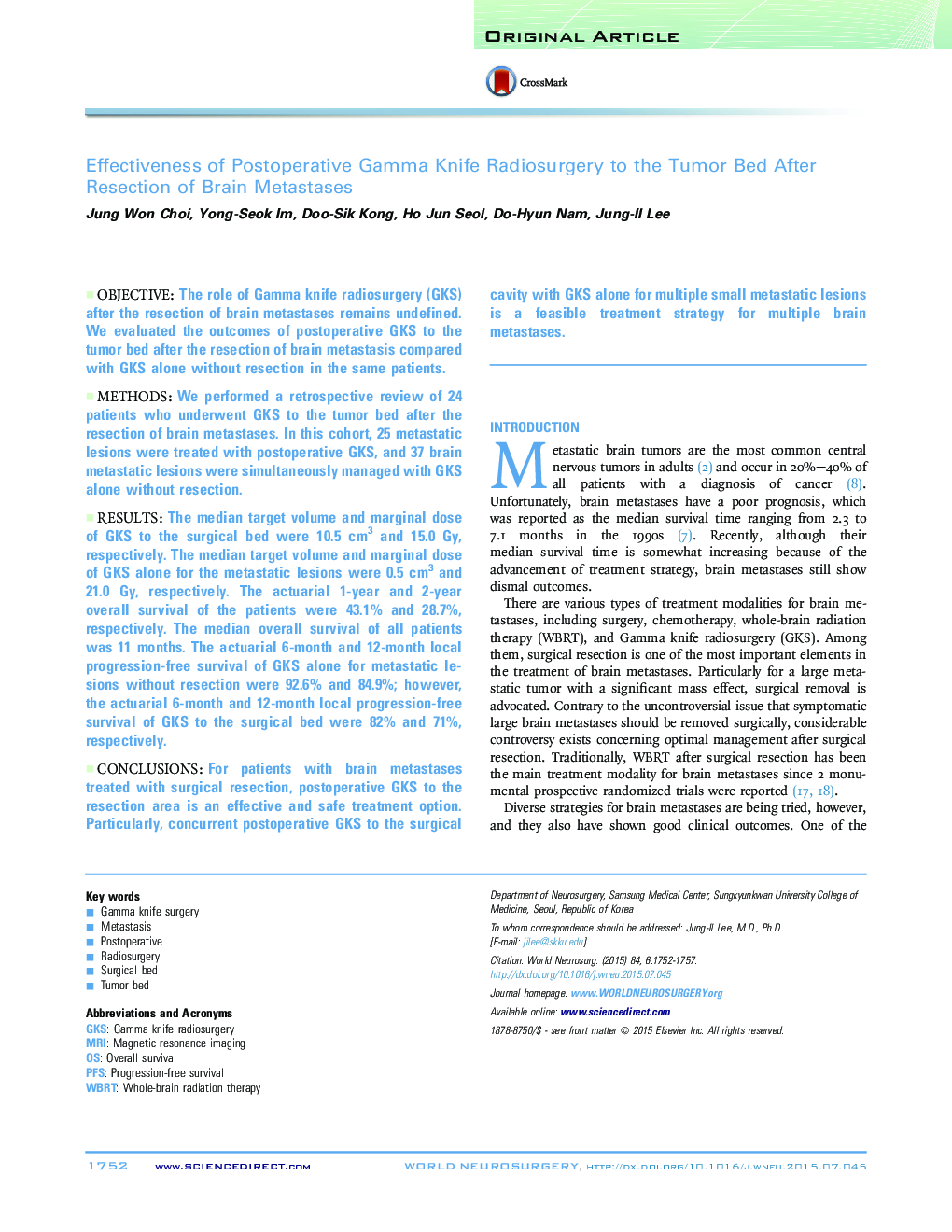| Article ID | Journal | Published Year | Pages | File Type |
|---|---|---|---|---|
| 6044498 | World Neurosurgery | 2015 | 6 Pages |
ObjectiveThe role of Gamma knife radiosurgery (GKS) after the resection of brain metastases remains undefined. We evaluated the outcomes of postoperative GKS to the tumor bed after the resection of brain metastasis compared with GKS alone without resection in the same patients.MethodsWe performed a retrospective review of 24 patients who underwent GKS to the tumor bed after the resection of brain metastases. In this cohort, 25 metastatic lesions were treated with postoperative GKS, and 37 brain metastatic lesions were simultaneously managed with GKS alone without resection.ResultsThe median target volume and marginal dose of GKS to the surgical bed were 10.5 cm3 and 15.0 Gy, respectively. The median target volume and marginal dose of GKS alone for the metastatic lesions were 0.5 cm3 and 21.0 Gy, respectively. The actuarial 1-year and 2-year overall survival of the patients were 43.1% and 28.7%, respectively. The median overall survival of all patients was 11 months. The actuarial 6-month and 12-month local progression-free survival of GKS alone for metastatic lesions without resection were 92.6% and 84.9%; however, the actuarial 6-month and 12-month local progression-free survival of GKS to the surgical bed were 82% and 71%, respectively.ConclusionsFor patients with brain metastases treated with surgical resection, postoperative GKS to the resection area is an effective and safe treatment option. Particularly, concurrent postoperative GKS to the surgical cavity with GKS alone for multiple small metastatic lesions is a feasible treatment strategy for multiple brain metastases.
